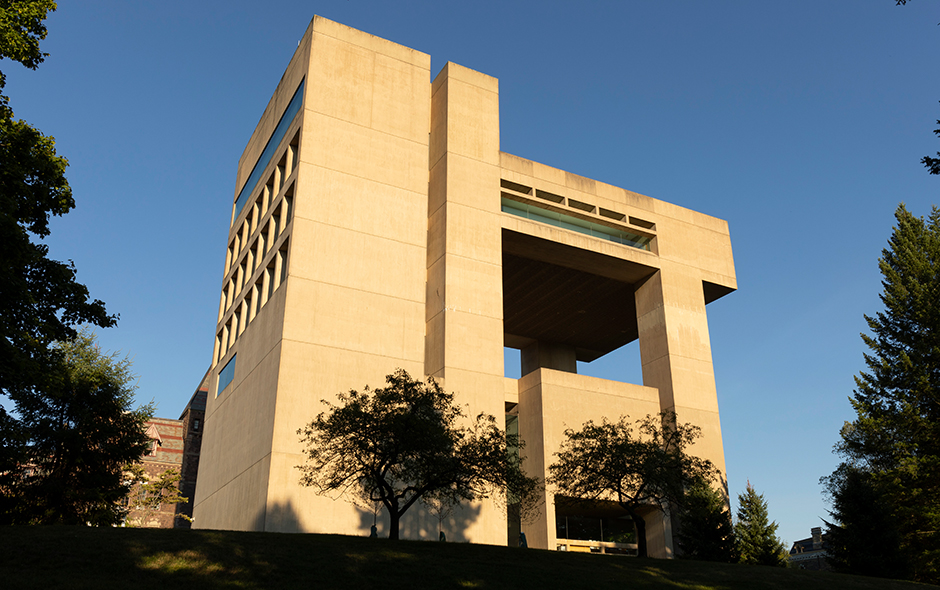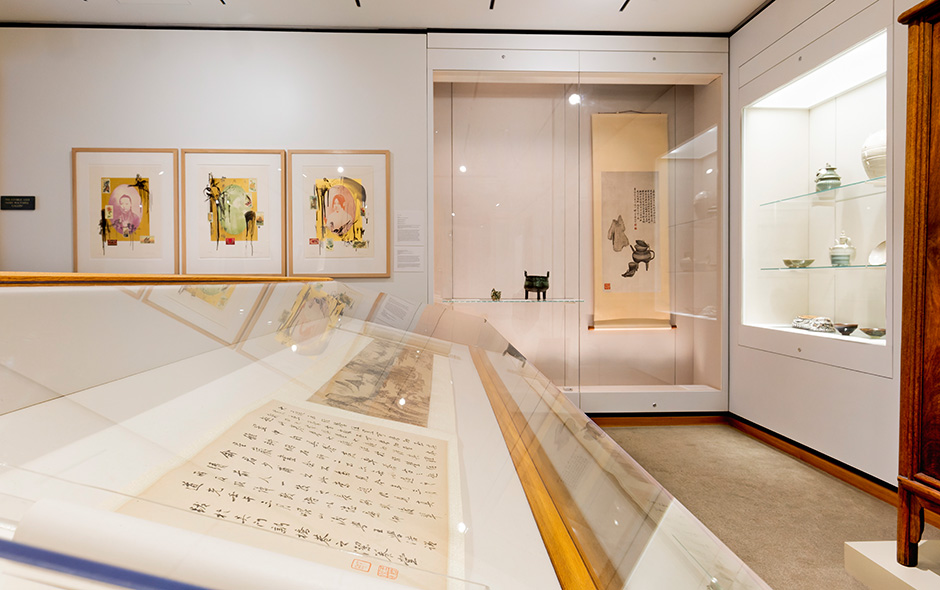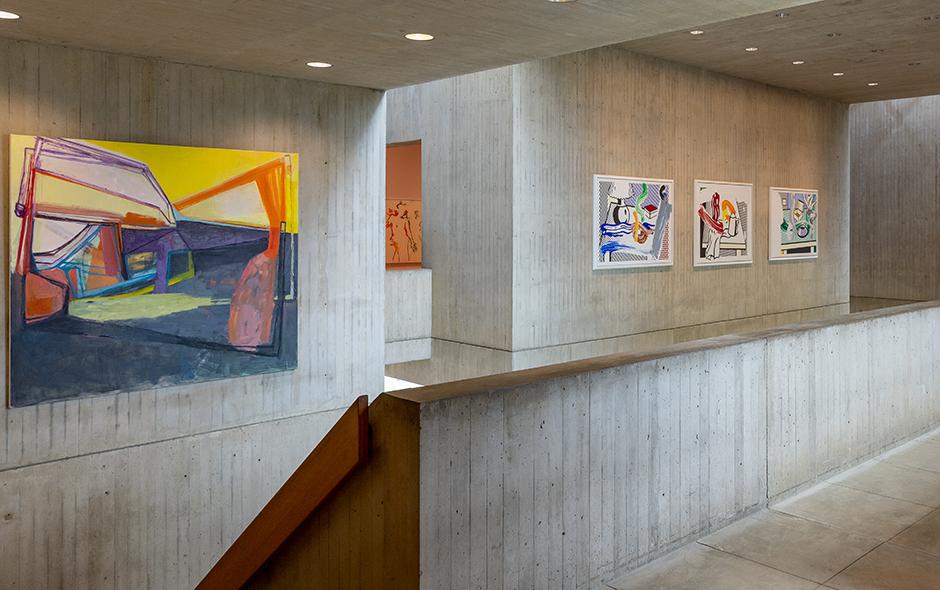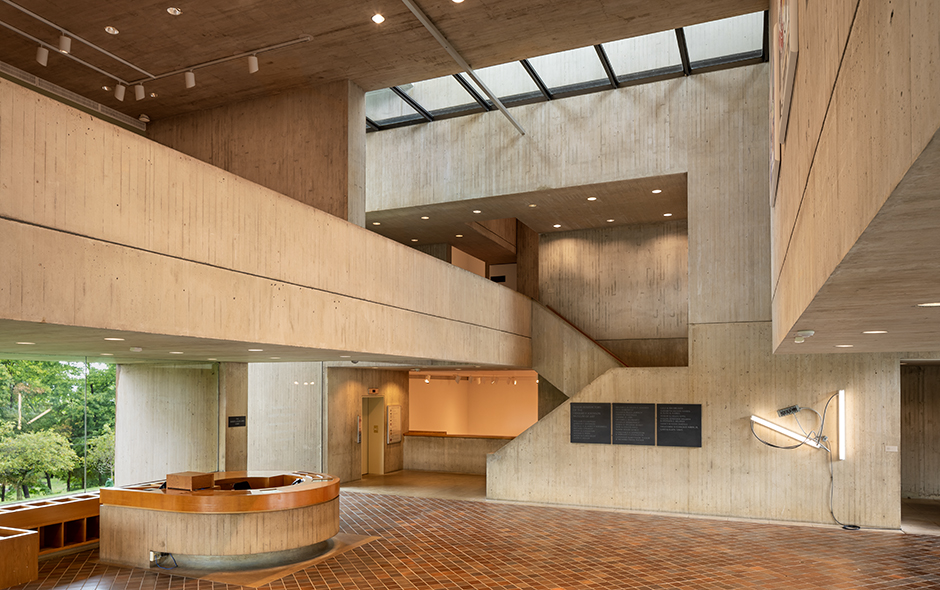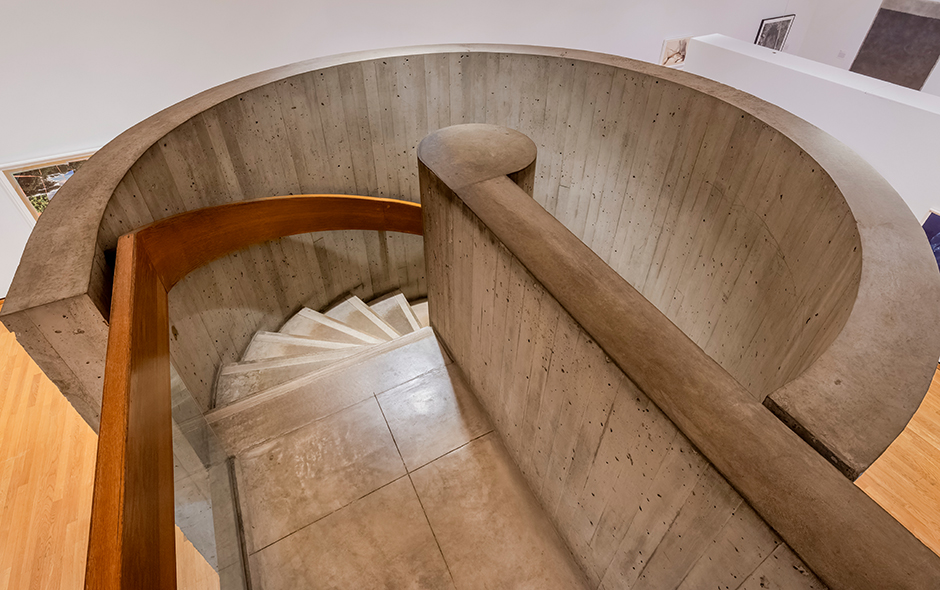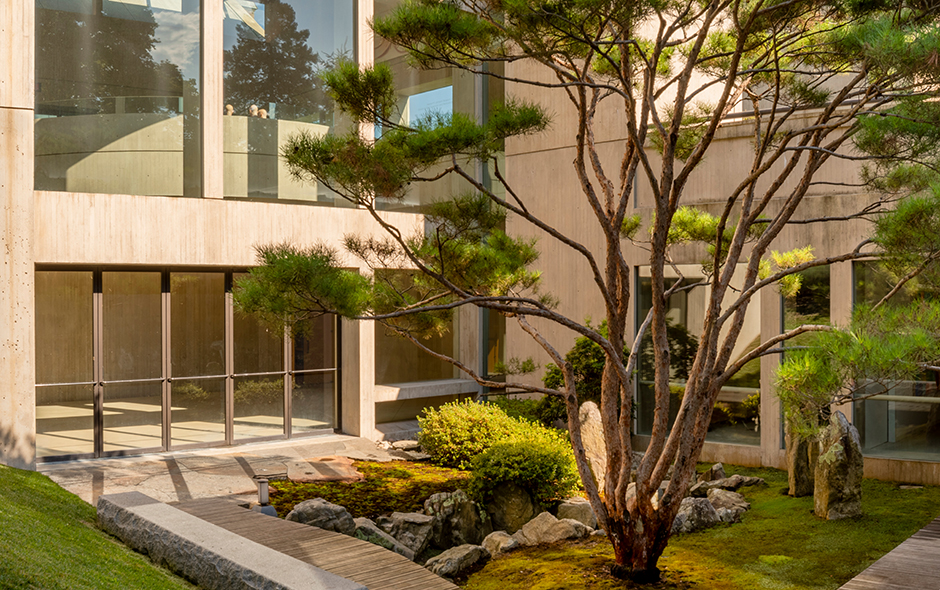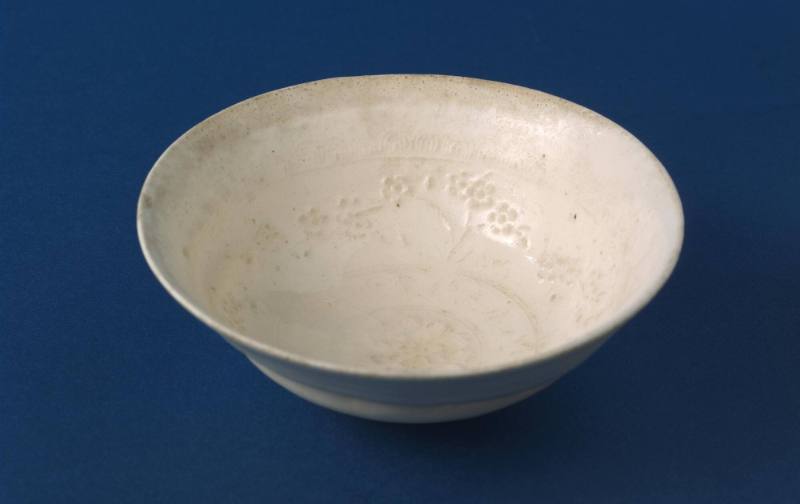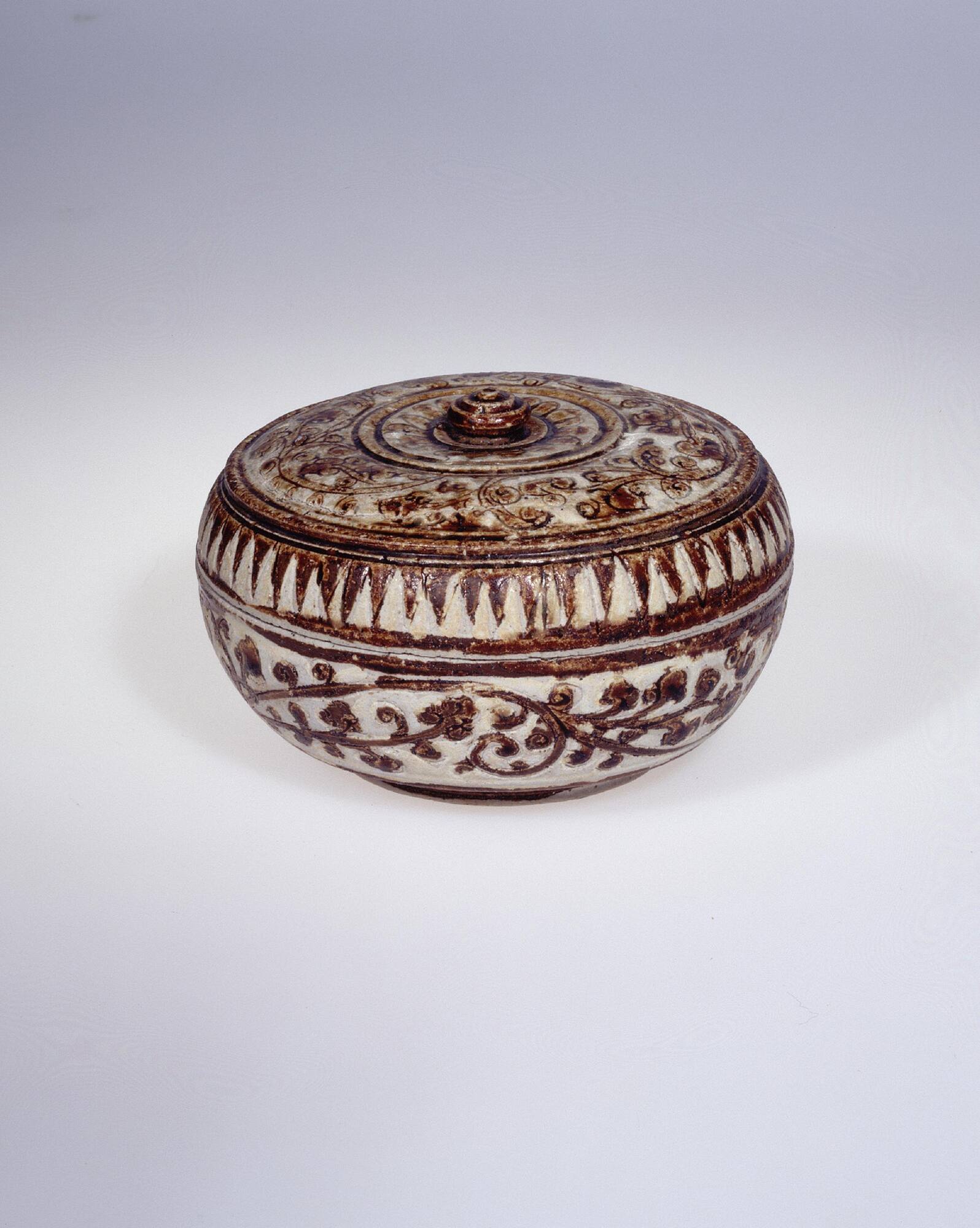
Object Details
Culture
Thai
Date
ca. 14th century
Medium
Stoneware with incised decorations in brown, and background in white, covered by a thin, transparent glaze
Dimensions
3 × 5 inches (7.6 × 12.7 cm)
Credit Line
Gift of Dean F. Frasché
Object
Number
71.169
Of all the ceramics produced in Thailand, those from the Sawankhalok kilns have been found in the gr(…)
Of all the ceramics produced in Thailand, those from the Sawankhalok kilns have been found in the greatest numbers throughout Southeast Asia. This indicates they were produced for export rather than for domestic use. The export of Thai ceramics to other parts of Southeast Asia and beyond to the Arab world and Japan was at its peak in the fourteenth century, when Chinese wares were unavailable for export due to the disruption of the Mongol conquest. Hence the large numbers of Sawankhalok wares found in sites and shipwrecks in Malaysia and the Philippines. They were traditionally made of a high-fired coarse grey paste. This particular piece is part of a series of painted wares that have been found at different kiln sites. The ceramics were shaped, dried, painted in brown iron overglaze, and then fired. (From “A Handbook of the Collection: Herbert F. Johnson Museum of Art,” 1998)



